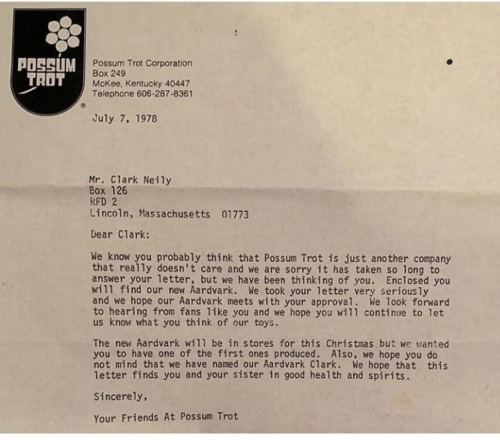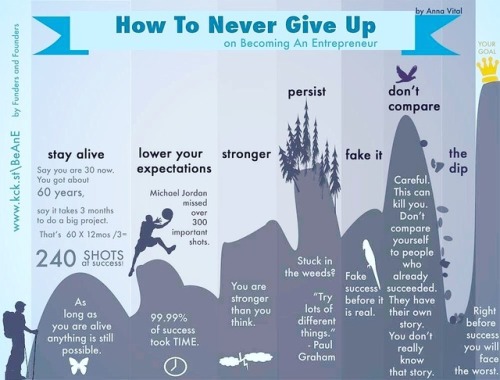Vcsupertramp - VC Supertramp




More Posts from Vcsupertramp and Others
“In law a man is guilty when he violates the rights of others. In ethics he is guilty if he only thinks of doing so” - Immanuel Kant

“If you’re the smartest person in the room, you’re in the wrong room.” - Marissa Mayer, President & CEO of Yahoo

➕ How to never give up on Becoming an Entrepreneur🥢🥢
Most common shots in filmmaking
Cinematography - Shot Types
Establishing Shot - a shot that establishes the setting of the scene. Usually a wide shot.

Titanic (1997)
Master Shot - A shot that includes all the actions of a scene. Usually a wide shot.

American Beauty (1999)
Two-Shot - A shot that has two subjects next to each other. Sometimes shows camaraderie.

Pulp Fiction (1994)
Over-the-Shoulder (OTS) - a shot of one subject that includes the shoulder of the character opposite the subject. Makes the scene feel more crowded or the characters closer.

The Dark Knight (2008)
Point-of-View (POV) - a shot from the perspective of a character, animal, or sometimes object. Can help convey what a certain character is feeling.

Reservoir Dogs (1992)
Tracking Shot - a shot that follows the action, usually on a dolly.

The Shining (1980)
Dutch Angle - a shot that is tilted to give the effect that something is not right. Also called: German angle; Dutch tilt; canted angle; oblique angle

Mission Impossible (1996)
High Angle - an angle that is shot from above the subject. Makes the subject appear small or powerless.

Matilda (1996)
Low Angle - an angle that is shot from below the subject. Makes the subject appear large and powerful.

Citizen Kane (1941)
Types as Oscar Wilde Quotes
ESTJ: “No man is rich enough to buy back his past.”
ISTJ: “If I am occasionally a little over-dressed, I make up for it by being always immensely over-educated.”
ESFJ: “The nicest feeling in the world is to do a good deed anonymously–and have somebody find out.”
ISFJ: “There are many things that we would throw away if we were not afraid that others might pick them up.”
ENTJ: “There is no sin except stupidity.”
INTJ: “A thing is not necessarily true because a man dies for it.”
ENFJ: “You don’t love someone for their looks, or their clothes, or for their fancy car, but because they sing a song only you can hear.”
INFJ: “Behind every exquisite thing that existed, there was something tragic.”
ESTP: “I can resist anything except temptation.”
ISTP: “One should always be a little improbable.”
ESFP: “Some things are more precious because they don’t last long.”
ISFP: “Every portrait that is painted with feeling is a portrait of the artist, not of the sitter.”
ENTP: “I am so clever that sometimes I don’t understand a single word of what I am saying.”
INTP: “Always forgive your enemies; nothing annoys them so much.”
ENFP: “Never love anyone who treats you like you’re ordinary.”
INFP: “Be yourself; everyone else is already taken.”
There is a phrase used to describe people, often strangers, as “ships passing in the night.” The phrase is meant to describe how fleeting the intersection of two lives can be, how briefly people we don’t know can flicker in and out of our lives.
But when I read about the Titanic, I think we can push the phrase further. Because sometimes, as you pass another ship in the night, you may hear a cry in the dark. A person in danger. A shout for help. Distress rockets and SOS signals wailing into the night. A stranger in crisis.
And in those fleeting moments as your ship passes theirs, you get to make the choice- are you the Californian, the closest ship to the Titanic, which saw the distress rockets and saw the lights on the horizon and sat and did nothing; or are you the Carpathia, turning on a dime, pushing all steam to the engines, racing to help.
We can not say for sure what caused the Californian to not help the Titanic in that night of crisis. Whether is was apathy or incompetence or fear, we don’t know.
But we know that every single soul who survived the Titanic survived because of the Carpathia. Because the crew and the passengers of that ship raced nearly 60 miles through ice fields above their maximum speed in the dead of night, readying life boats, readying triage, to pull them from the water.
So, yes, we are ships passing in the night, and when given the chance to turn away or do good, always err on the side of reckless compassion.
You don’t fear change. You fear the unknown. If you knew the future would be great, you’d welcome the change to get there. Well the future IS great. Proceed
Joe Viatale

The Most Majestic Libraries In The World
















We make a living by what we get, but we make a life by what we give.
Winston Churchill (via forbes)

-
 all-the-extra-stuff reblogged this · 1 week ago
all-the-extra-stuff reblogged this · 1 week ago -
 rainbowbeansprout reblogged this · 1 week ago
rainbowbeansprout reblogged this · 1 week ago -
 mollysfabulous liked this · 1 week ago
mollysfabulous liked this · 1 week ago -
 andthenthersjas liked this · 1 week ago
andthenthersjas liked this · 1 week ago -
 dragonmoose liked this · 1 week ago
dragonmoose liked this · 1 week ago -
 sergeantfluid reblogged this · 1 week ago
sergeantfluid reblogged this · 1 week ago -
 sergeantfluid liked this · 1 week ago
sergeantfluid liked this · 1 week ago -
 agathaallalongg liked this · 1 week ago
agathaallalongg liked this · 1 week ago -
 craniumzirconium reblogged this · 1 week ago
craniumzirconium reblogged this · 1 week ago -
 craniumzirconium liked this · 1 week ago
craniumzirconium liked this · 1 week ago -
 glueandmorphemes liked this · 2 weeks ago
glueandmorphemes liked this · 2 weeks ago -
 jauniegal liked this · 2 weeks ago
jauniegal liked this · 2 weeks ago -
 sashasparrow reblogged this · 2 weeks ago
sashasparrow reblogged this · 2 weeks ago -
 shirbu liked this · 2 weeks ago
shirbu liked this · 2 weeks ago -
 aleria14 reblogged this · 2 weeks ago
aleria14 reblogged this · 2 weeks ago -
 aleria14 liked this · 2 weeks ago
aleria14 liked this · 2 weeks ago -
 iaceofbladesi reblogged this · 2 weeks ago
iaceofbladesi reblogged this · 2 weeks ago -
 iaceofbladesi liked this · 2 weeks ago
iaceofbladesi liked this · 2 weeks ago -
 epitome-of-stupidity liked this · 2 weeks ago
epitome-of-stupidity liked this · 2 weeks ago -
 devil-does-not-care liked this · 2 weeks ago
devil-does-not-care liked this · 2 weeks ago -
 reyaanangel reblogged this · 2 weeks ago
reyaanangel reblogged this · 2 weeks ago -
 reyaanangel liked this · 2 weeks ago
reyaanangel liked this · 2 weeks ago -
 sage-black-or-remus-lupin-90 reblogged this · 2 weeks ago
sage-black-or-remus-lupin-90 reblogged this · 2 weeks ago -
 night-flare reblogged this · 2 weeks ago
night-flare reblogged this · 2 weeks ago -
 night-flare liked this · 2 weeks ago
night-flare liked this · 2 weeks ago -
 the-richie liked this · 2 weeks ago
the-richie liked this · 2 weeks ago -
 jammahanna reblogged this · 2 weeks ago
jammahanna reblogged this · 2 weeks ago -
 jammahanna liked this · 2 weeks ago
jammahanna liked this · 2 weeks ago -
 thelordsprostitute reblogged this · 2 weeks ago
thelordsprostitute reblogged this · 2 weeks ago -
 thelordsprostitute liked this · 2 weeks ago
thelordsprostitute liked this · 2 weeks ago -
 anomalocaris-in-da-clurb reblogged this · 2 weeks ago
anomalocaris-in-da-clurb reblogged this · 2 weeks ago -
 anomalocaris-in-da-clurb liked this · 2 weeks ago
anomalocaris-in-da-clurb liked this · 2 weeks ago -
 bigmilkymantatas liked this · 2 weeks ago
bigmilkymantatas liked this · 2 weeks ago -
 ifitmakesyoushush reblogged this · 2 weeks ago
ifitmakesyoushush reblogged this · 2 weeks ago -
 olbwdt liked this · 2 weeks ago
olbwdt liked this · 2 weeks ago -
 silliestbreadstick liked this · 2 weeks ago
silliestbreadstick liked this · 2 weeks ago -
 messingwithmoony reblogged this · 2 weeks ago
messingwithmoony reblogged this · 2 weeks ago -
 messingwithmoony liked this · 2 weeks ago
messingwithmoony liked this · 2 weeks ago -
 rat-beastard43 liked this · 2 weeks ago
rat-beastard43 liked this · 2 weeks ago -
 clowncarfullofrats reblogged this · 2 weeks ago
clowncarfullofrats reblogged this · 2 weeks ago -
 clowncarfullofrats liked this · 2 weeks ago
clowncarfullofrats liked this · 2 weeks ago -
 dandelionflowery-reblogs reblogged this · 2 weeks ago
dandelionflowery-reblogs reblogged this · 2 weeks ago -
 i-set-my-autism-on-fire reblogged this · 2 weeks ago
i-set-my-autism-on-fire reblogged this · 2 weeks ago -
 i-set-my-autism-on-fire liked this · 2 weeks ago
i-set-my-autism-on-fire liked this · 2 weeks ago -
 scrowj liked this · 2 weeks ago
scrowj liked this · 2 weeks ago -
 vioqueenofmushrooms reblogged this · 2 weeks ago
vioqueenofmushrooms reblogged this · 2 weeks ago -
 geck-motj reblogged this · 2 weeks ago
geck-motj reblogged this · 2 weeks ago -
 a-silent-storyteller liked this · 2 weeks ago
a-silent-storyteller liked this · 2 weeks ago -
 arthur-lesters-right-foot reblogged this · 2 weeks ago
arthur-lesters-right-foot reblogged this · 2 weeks ago -
 the-gronhaj reblogged this · 2 weeks ago
the-gronhaj reblogged this · 2 weeks ago
Wanderer, there is no way, you make the way as you go... Just a wanderer enjoying the rollercoaster.
176 posts